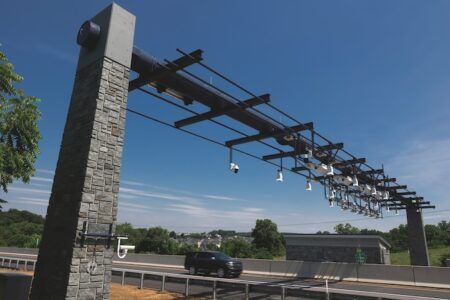As announced yesterday (September 1), the Federal Highway Administration (FHWA) has awarded the Oregon Department of Transportation (ODOT) US$2.1m to further develop OReGO, the USA’s first Road Usage Charge (RUC) Program. The agency has now revealed how the funding will be spent.
ODOT successfully launched OReGO in July 2015. The fully operational system is functioning effectively, with 1,263 vehicles enrolled to date, providing enough participation to adequately test and have confidence in the program’s systems and processes. With a year’s experience, ODOT has demonstrated that charging per mile instead of per gallon is feasible. According to the results of the ‘OReGO Volunteer Experience Independent Assessment Survey’, which was carried out in 2015 by Public Knowledge, participants have reported a high level of satisfaction with the program. The new FAST Act grant will allow ODOT to develop and test more technologies to improve the system.
Some of the activities the grant will support include:
Certifying new business models and devices that will allow all Oregonians to participate; Developing a manual mileage reporting option that does not require specific technology; Collaborating with other government bodies, such as the cities of Portland and Salem, and the Port of Portland, to streamline road charge-related services; Developing and improving compliance mechanisms that would support a mandatory program; Working with other states to identify and overcome barriers to interoperability, in order to enhance the viability of road usage charging locally and nationally.
“Our vision is to transition this functional program into a viable program that could realistically help bridge the growing gap between fuels tax collection and transportation infrastructure needs,” said Travis Brouwer, ODOT assistant director.
“We’ve learned how to run a road usage charge system using private sector partners, which no other state has done before. Leveraging the private sector makes the per-mile charge concept viable by injecting choice and innovation into the system. There is much more room for growth in terms of the technology that captures and reports mileage data. This grant will give us the opportunity to explore it.”
Tom Fuller, ODOT’s communications manager, noted, “Much has changed in just this first year of OReGO. Before the launch, privacy, or the worry that a vehicle’s location would be tracked, was the top concern. One year later, 75% of OReGO vehicles are using a GPS technology option. Senate Bill 810 established strict privacy protection standards for this program, and vehicles are never tracked. Volunteers tell us they like the extra services and vehicle information they get with the GPS options. Even so, we want more volunteers to join, so we can continue to evaluate the system through the experiences of the people who use it. Besides that, the concept is still unknown or misunderstood by the majority of Oregonians. This grant will help us better understand public concerns, educate people about transportation funding, and show how a per-mile charge could sustain our transportation system well into the future.”




